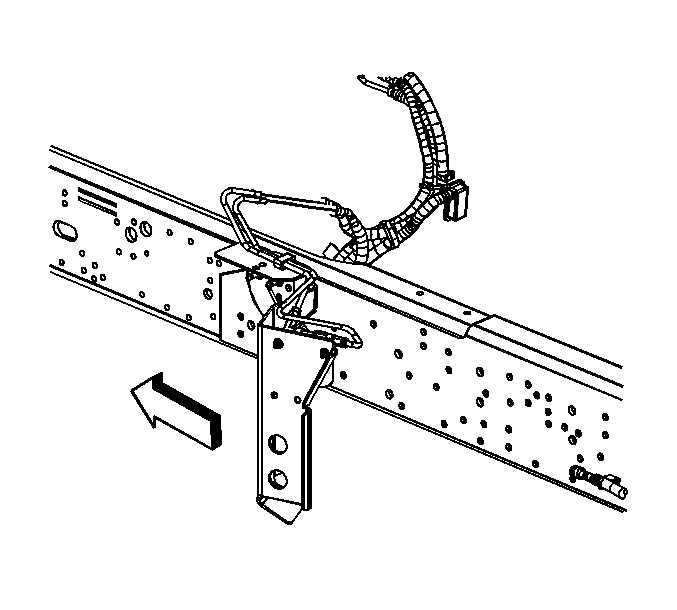Removal Procedure
Caution: In order to reduce the risk of fire and personal injury observe the
following items:
• Replace all nylon fuel pipes that are nicked, scratched or damaged
during installation, do not attempt to repair the sections of the nylon fuel
pipes • Do not hammer directly on the fuel harness body clips when installing
new fuel pipes. Damage to the nylon pipes may result in a fuel leak. • Always cover nylon vapor pipes with a wet towel before using a
torch near them. Also, never expose the vehicle to temperatures higher than
115°C (239°F) for more than one hour, or more than 90°C (194°F)
for any extended period. • Apply a few drops of clean engine oil to the male pipe ends before
connecting fuel pipe fittings. This will ensure proper reconnection and prevent
a possible fuel leak. (During normal operation, the O-rings located in the
female connector will swell and may prevent proper reconnection if not lubricated.)
- Relieve the fuel system pressure. Refer to Fuel Pressure Relief in Engine Controls - 8.1L.
- Open the hood .
- Remove the left side splash shield. Refer to Wheelhouse Splash Shield Replacement in Body Front End.
- Disconnect the fuel feed line from the fuel filter pipe. Refer to Metal Collar Quick Connect Fitting Service in Engine Controls - 6.6L (LB7).
- Unclip the fuel filter pipe retaining clip.
- Remove the fuel filter pipe from the fuel filter head .
Important:
• Clean all the fuel pipe connections and the surrounding areas before
disconnecting the pipes in order to avoid possible contamination of the fuel system. • Cap all fuel pipes to avoid possible contamination of the fuel system.

Installation Procedure
- Install the fuel feed pipe to the fuel filter head. Refer to Metal Collar Quick Connect Fitting Service in Engine Controls - 6.6L (LB7).
- Connect the fuel feed pipe to the retainer.
- Connect the fuel feed line to the fuel feed pipe.
- Inspect for fuel leaks.

